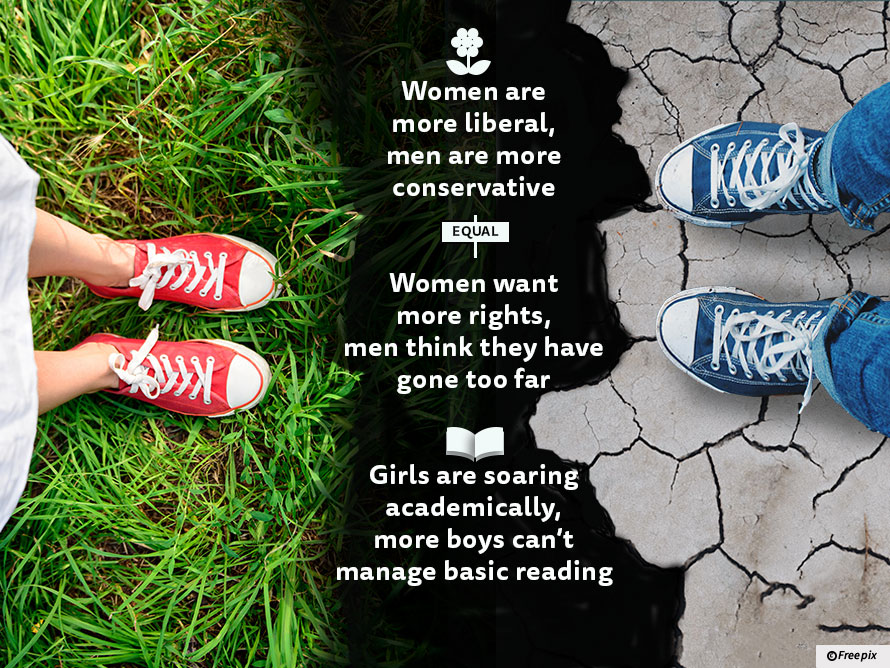Are boys being left behind? Research suggests that young women are outpacing men in achievement — and that many men are turning to anti-feminist politics in response.
Growing gulf between genders, academics warn
 Ideological gap: Young men and women in the same societies no longer see eye-to-eye.
Ideological gap: Young men and women in the same societies no longer see eye-to-eye. Glossary
Millennials - People who reached adulthood in the early 21st Century.
Boomers - Boomers, or baby boomers, are the group of people between 1946 and 1964. They were born during a baby boom directly after World War Two.
Gen X - People born between 1965 and 1980.
Gen Z - Short for Generation Z, meaning people born in the late 1990s and early 2000s.
Liberal - Liberalism is a school of political thought that stresses individual liberty. Liberals believe that society should not try to impose values or behaviours on individuals but should be tolerant of different lifestyles. A leading exponent of liberal thought was the 19th-century English philosopher John Stuart Mill, the author of the classic work On Liberty.
Conservative - Holding traditional values, and in a political context, favouring policies such as private ownership.
Higher education - Education after you leave school — such as at a university.
EU - European Union. An economic and political union of 27 countries.
Feminism - Calling for women's rights with the aim of achieving gender equality.
Misogynist - A person or being who dislikes and is prejudiced against women.
